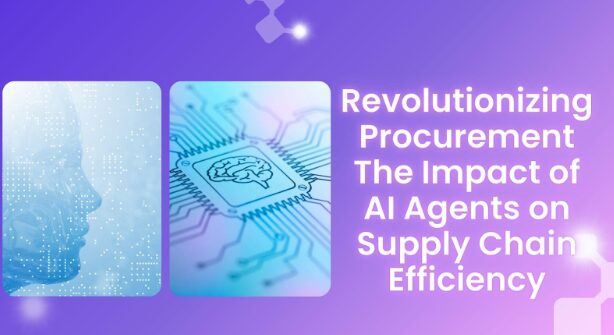In this modern era, the procurement sector has experienced a paradigm shift thanks to artificial intelligence (AI), enhancing operational efficiency and reshaping supply chain management. Parameswara Rao Tatini, an expert in AI-driven procurement solutions, explores how AI-powered agents are revolutionizing traditional procurement processes. These innovations enable companies to make smarter decisions, optimize supply chains, and improve overall performance. This transformation is not just technological but also pushing procurement from a reactive, manual process to a proactive, data-driven one.
The Evolution of Procurement Through AI
Traditional procurement relied heavily on manual processes that were prone to inefficiencies and errors. Organizations struggled with fragmented data, slow decision-making, and a lack of real-time insights. However, with AI integration, procurement has shifted dramatically, moving from reactive practices to proactive strategies. AI systems can process vast amounts of data in real time, enabling businesses to streamline operations, reduce costs, and enhance efficiency. These AI-powered solutions give procurement teams the ability to make faster, more accurate decisions.
AI-Powered Supplier Discovery and Evaluation
One of the most significant advancements in AI for procurement is supplier discovery and evaluation. Historically, selecting suppliers involved manual processes and subjective judgment, which often led to inconsistencies and errors. With AI, this process is automated and enhanced. AI agents assess various factors such as financial stability, delivery reliability, and supplier performance in real-time, offering a more data-driven and accurate approach to supplier selection. This shift allows organizations to optimize supplier matching, reduce sourcing risks, and ensure better overall supply chain performance.
Transforming Demand Forecasting with AI
Demand forecasting has long been a challenge in procurement. Traditional methods often relied on historical data and basic models, which made it difficult to predict future needs accurately. AI-driven predictive analytics, however, has revolutionized forecasting by analyzing not just historical data, but also market trends, external factors, and seasonality. These predictive models improve forecasting accuracy, allowing procurement teams to optimize inventory, reduce stockouts, and minimize waste. AI has also helped increase forecast accuracy from 70% to over 92%, leading to better planning and smarter procurement decisions.
AI-Powered Contract Management and Risk Mitigation
Contract management has historically been one of the most time-consuming and error-prone processes in procurement. AI is transforming this area by automating contract creation, reviewing terms, and identifying potential risks. This reduces the time spent on manual review, ensuring compliance and minimizing legal disputes. AI systems can analyze contracts for risk factors, optimize terms, and even predict future risks based on supplier data. Additionally, AI-driven risk mitigation systems continuously monitor global supply chains and suppliers, identifying risks from market fluctuations, natural disasters, or geopolitical events.
The Future of Procurement: AI, Blockchain, and Collaboration
Looking to the future, AI in procurement is set to expand further with the integration of emerging technologies such as blockchain and collaborative AI ecosystems. Blockchain, known for its transparency and security features, will play a key role in enhancing procurement systems by providing traceability for all transactions. The combination of blockchain and AI will improve supply chain traceability, enabling real-time validation of transactions and ensuring accuracy and consistency across all stages of the supply chain.
Collaborative AI ecosystems are gaining ground, allowing businesses to share data and insights while ensuring data privacy and security. These platforms have already shown promising results, with early adopters reporting improvements in supplier discovery efficiency and reduced supply chain risks. In the coming years, AI-powered smart contracts will further automate procurement processes, reducing transaction times and enhancing compliance management. As a result, businesses will experience faster, more secure transactions.
In conclusion, Parameswara Rao Tatini’s research highlights the transformative role AI is playing in procurement systems. By automating processes like supplier discovery, demand forecasting, and contract management, AI is enhancing the efficiency and accuracy of procurement practices. These advancements are helping businesses make smarter decisions, reduce risks, and foster more strategic supplier relationships. As AI continues to evolve and integrate with emerging technologies like blockchain, the future of procurement looks set to become even more automated, transparent, and resilient. This progress will not only optimize supply chains but also enable businesses to respond effectively to market dynamics and disruptions.



































